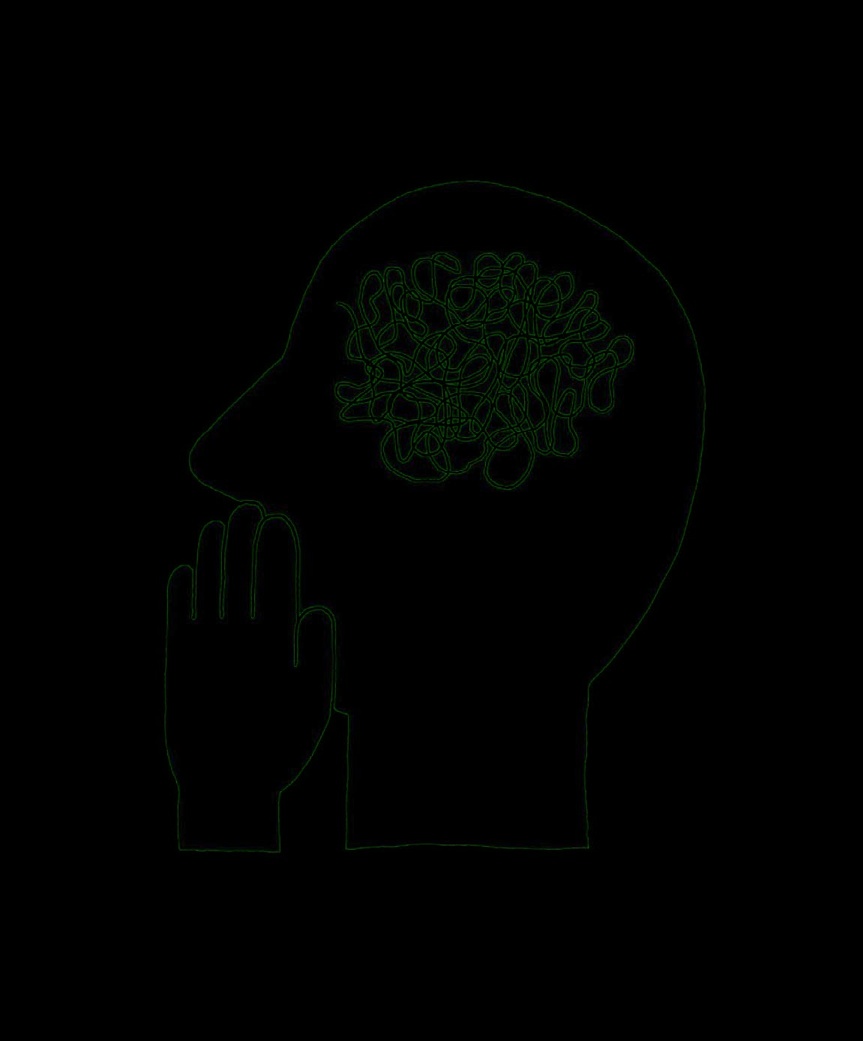The Psychology Book (13 page)
Read The Psychology Book Online
Authors: Unknown

WE KNOW
THE MEANING OF
“CONSCIOUSNESS”
SO LONG AS NO ONE ASKS US
T
WI O
LLIA DEFIN
M JAMES (1842–1910E
) IT


40 WILLIAM JAMES
IN CONTEXT
T
he term “consciousness” is
generally used to refer to
an individual’s awareness
APPROACH
of his or her own thoughts, including
Analysis of consciousness
sensations, feelings, and memories.
BEFORE
We usually take this awareness
Consciousness…
1641
René Descartes defines
for granted, except when we are
does not appear to itself
consciousness of self in terms
having difficulties—such as trying
chopped up in bits… It is
of the ability to think.
to do something when we are
nothing jointed; it flows.
very tired. But if you focus your
1690
English philosopher
William James
thoughts on your consciousness,
and physician John Locke
you soon become aware that your
defines consciousness as
conscious experiences are constantly
“the perception of what
changing. While reading this book,
passes in a man’s own mind.”
for example, you may be reminded
1781
German philosopher
of past experiences or present
Immanuel Kant states that
discomforts that interrupt your
simultaneous events are
concentration; plans for the future
naturally described. In talking of it
experienced as a “unity
may spontaneously spring to mind.
hereafter, let us call it the stream of
of consciousness.”
Thinking about your conscious
thought, of consciousness….”
experiences makes you realize
James’s famous description
AFTER
just how much your thoughts are
of the “stream... of consciousness”
1923
Max Wertheimer in
changing, and yet they seem to
is one that almost everyone can
Laws of Organization in
come together, merging and
identify with, because we all
Perceptual Forms
shows
carrying on smoothly as a whole.
experience it. Yet, at the same
how the mind actively
American psychologist William
time, James points out that it is
interprets images.
James compared these everyday
very hard to actually define: “When
experiences of consciousness to
I say every thought is part of a
1925
John B. Watson
a stream that continuously flows,
personal consciousness, ‘personal
dismisses consciousness
despite the odd interruption and
consciousness’ is one of the terms
as “neither a definite nor a
change of direction. He declared:
in question… to give an accurate
usable concept.”
“A ‘river’ or a ‘stream’ are the
account of it is the most difficult
metaphors by which it is most
of philosophic tasks.”
William James
William James was born in 1842
In 1873, James returned to
to a wealthy and influential New
Harvard, where he became a
York family, and traveled widely
professor of both philosophy
as a child, attending schools in
and psychology. He set up the
both Europe and the US. James
first experimental psychology
showed early artistic ability and
courses in the US, playing a key
initially pursued a career as a
role in establishing psychology
painter, but his growing interest
as a truly scientific discipline.
in science eventually led to him
He retired in 1907, and died
to enrol at Harvard University in
peacefully at his home in New
1861. By 1864, he had moved to
Hampshire in 1910.
Harvard Medical School, although
his studies were interrupted by
Key works
bouts of physical illness and
depression. He finally qualified
1890
The Principles of Psychology
as a physician in 1869, but never
1892
Psychology
practiced medicine.
1897
The Will to Believe

PHILOSOPHICAL ROOTS 41
See also:
René Descartes 20–21 ■ Wilhelm Wundt 32–37 ■ John B. Watson 66–71 ■ Sigmund Freud 92–99 ■
Fritz Perls 112–17 ■ Wolfgang Köhler 160–61 ■ Max Wertheimer 335
This “most difficult of philosophic
tasks” has a long history. The
ancient Greeks discussed the
Consciousness seems to be a
mind, but did not use the term
stream of thoughts
.
“consciousness” or any equivalent.
However, there was debate as
to whether something separate
from the body exists at all. In the
fourth century BCE, Plato made a
distinction between the soul and
These thoughts are
Each thought follows
body, but Aristotle argued that
entirely separate
one after another
…
even if there is a distinction, the
from each other…
two cannot be separated.
Early definitions
René Descartes, in the mid-17th
century, was one of the first
…and yet somehow they
philosophers to attempt to describe
combine to give us a sense of
consciousness, proposing that it
unified consciousness
.
resides in an immaterial domain
he called “the realm of thought,” in
contrast to the physical domain of
material things, which he called
“the realm of extension.” However,
the first person accredited with the
modern concept of consciousness
This is because thoughts that enter our
as an ongoing passage of individual
awareness at the same time form a
“pulse”
perceptions is the 17th-century
within the stream of consciousness.
English philosopher John Locke.
James was drawn to Locke’s idea of
passing perceptions and also to the
work of the 18th-century German
philosopher Immanuel Kant. Kant
was impressed by the way our
These pulses jolt us from
...but
continue to
experiences come together, noting
one conclusion (or
“resting
stream onward
.
place”
) to another...
that if we hear a noise and feel pain
at the same time, we typically
experience these as one event.
He called this the “unity of
consciousness,” a concept that
influenced many later philosophers,
including William James.
We know the
James felt the most important
meaning of
Our consciousness is
point about consciousness is that
“consciousness” so
constantly evolving
.
it is not a “thing” but a process—it
long as no one asks
is what the brain does to “steer a
us to define it.
nervous system grown too complex
to regulate itself.” It allows us to ❯❯

42 WILLIAM JAMES
words, take twelve men, and to
thoughts, or sensations, he believed,
each give one word. Then stand the
are unavoidably connected, like
men in a row or jam, and let each
Kant’s example of hearing a noise
think of his word as intently as he
and feeling pain at precisely the
will; nowhere will there be a
same time, because any thoughts
consciousness of the whole
that enter our awareness during the
No-one ever had a simple
sentence.” If consciousness is a
same moment of time combine to
sensation by itself:
stream of distinct thoughts, James
form a pulse, or current, within the
consciousness…
struggled to see how these combine.
stream. We may have many of
is of a teeming
As he said, “The idea of
a
plus the
these currents flowing through our
multiplicity of
idea of
b
is not identical with the
consciousness, some fast and some
objects and relations.
idea of
(a + b).
” Two thoughts added
slow. James stated that there are
William James
together cannot be made into one
even resting points, where we
idea. They are more likely to form
pause to form pictures in our
an entirely new idea. For example,
minds, which can be held and
if thought
a
is “it’s nine o’clock,”
contemplated at length. He called
and thought
b
is “the train leaves
the resting places “substantive
at 9:02,” thought
c
—“I’m going to
parts,” and the moving currents
miss my train!”—might follow.
the “transitive parts,” claiming that
reflect upon the past, present,
our thinking is constantly being
and future, to plan and adapt to
Combining thoughts
dislodged from one substantive
circumstances and so fulfill what
James concluded that the simplest
part toward another, propelled by
he believed was the prime purpose
way to understand how thoughts
the transitive parts, or current. We
of consciousness—to stay alive.
within the stream of consciousness
are, therefore, effectively “bumped”
